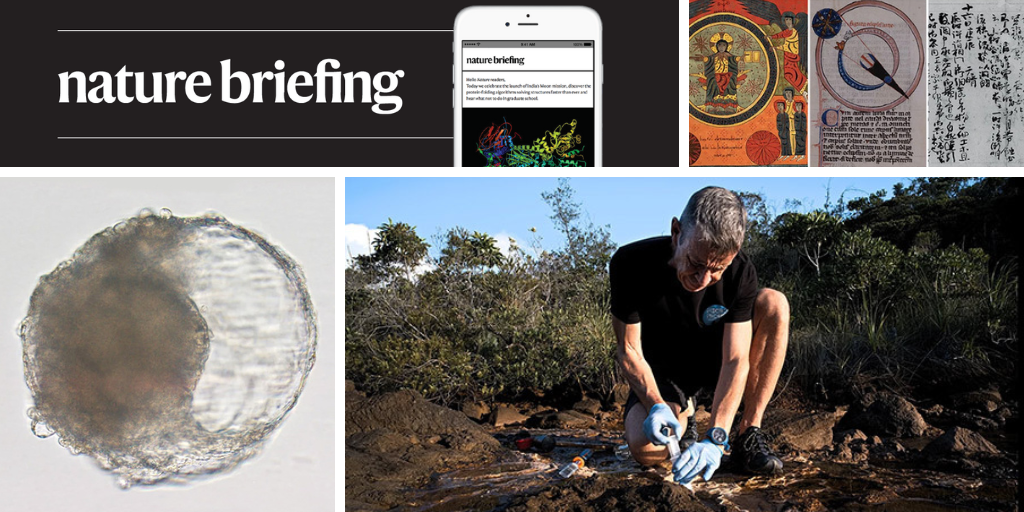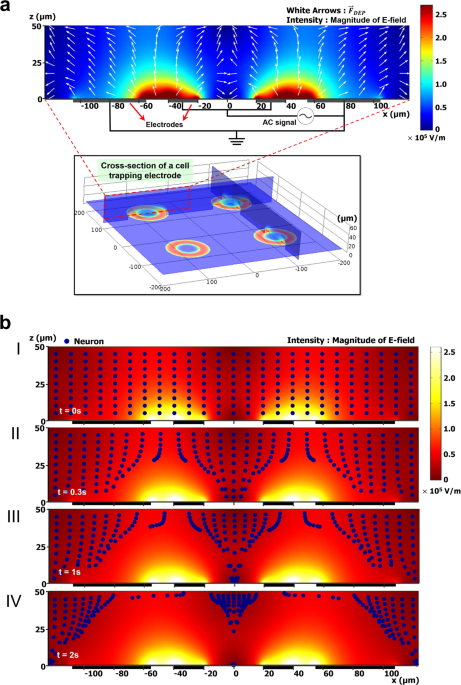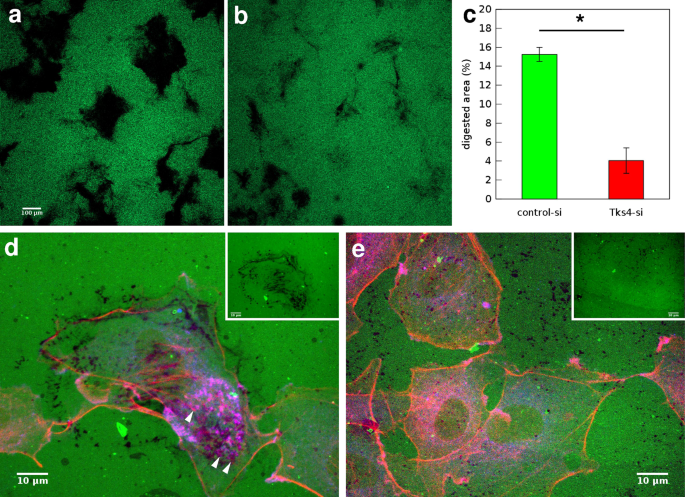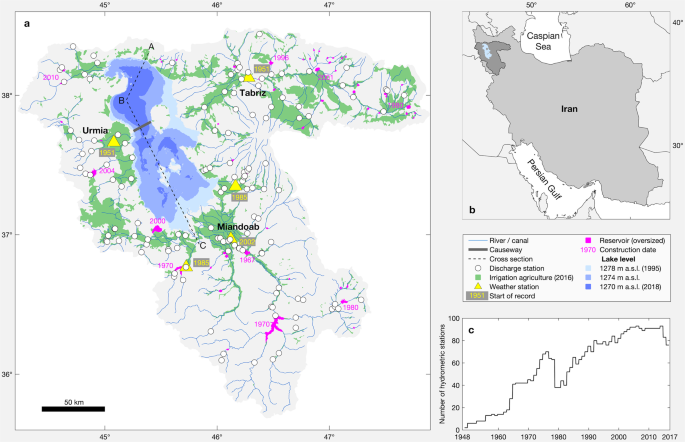
- Select a language for the TTS:
- UK English Female
- UK English Male
- US English Female
- US English Male
- Australian Female
- Australian Male
- Language selected: (auto detect) - EN
Play all audios:
Hello Nature readers, would you like to get this Briefing in your inbox free every day? Sign up here
Lunar eclipses were chronicled in medieval accounts (left to right) by Beatus of Liébana, Johannes de Sacrobosco and Fujiwara no Teika.Credit, L to R: British Lib. Board (Add. MS 11695,
f108r); New York Public Lib. (De Sphaera, MssCol 2557, f112v); Meigetsuki 4, 517 (2000)/Reizei-ke Shiguretei Bunko/Tokyo: Asahi Shinbunsha
Japanese poet Fujiwara no Teika wrote in his diary of an unusually long and dark lunar eclipse in December 1229, observing that it was as if the Moon had entirely “disappeared”. Now
climatologists have used Teika’s account and dozens of lunar observations made by medieval scholars, clerics and monks to help pin down the timing and impact of volcanic eruptions from 1100
to 1300. The research corroborates ice-core data and could help scientists to understand the run-up to the cold period known as the Little Ice Age.
Air pollution might cause lung cancer by creating inflammation that encourages proliferation of cells with existing cancer-driving mutations — not by mutating DNA itself. The results provide
a mechanism that could apply to other cancers caused by environmental exposure and might one day lead to ways to prevent them. “The idea is that exposures to carcinogens could promote
cancer without actually doing anything to the DNA,” says medical geneticist Serena Nik-Zainal. “Not every carcinogen is a mutagen.”
Africa’s first central biodiversity repository has launched in South Africa, giving a new home to more than a million DNA, seed, animal-tissue and microbe samples. They are insurance for the
future and a source of genes for improving crops and livestock or for developing medicines, explains the project’s leader, Michele Hamer.
Blastocytes derived from monkey stem cells have been implanted in the animals, triggering the early signs of pregnancy. The blastoids and pregnancy indications disappeared after 20 days, but
the breakthrough could offer a new way to study how embryos develop. The mechanisms of human development are still largely unstudied because of the ethical difficulties of sourcing and
experimenting with human embryos.
A blastoid created from cynomolgus-monkey stem cells. The blastoid resembles the early stages of an embryo and triggered pregnancy-like changes when implanted in a monkey’s uterus.Credit:
Jie Li
The World Health Organization (WHO) is emerging from the peak of the pandemic bruised by the political boxing match between China and the United States. As the global health agency turns 75,
its member states must get back to prioritizing universal health care, argues a Nature editorial. “In some of the poorest parts of the world, the WHO is a second health ministry, running
(or funding) primary-care clinics, delivering vaccinations and collecting data,” notes the editorial. “In conflict zones, it is one of the few trusted organizations that can do all of
these.”
There are hints that Alzheimer’s disease progresses differently in Black people in the United States than in white people, and has different causes and biomarkers. But results are
conflicting because there have been so few studies. Cognitive neuropsychologist Lisa Barnes is changing that. Where other scientists might scramble to publish papers on this group and to
recruit Black participants on short notice, Barnes spent years gaining the trust of Black communities, who have lived through a history of horrendous medical experimentation. It paid off:
one of Barnes’ most-cited studies shows that a gene variant tightly linked to Alzheimer’s in white populations does not have the same effect in Black populations. But for Barnes, the most
important work has been on social factors, such as how school segregation and discrimination can lead to lower cognition later in life, and how spending time with friends and family can be
protective.
Gaël Erauso is a microbiologist at the Mediterranean Institute of Oceanography in Marseille, France.Credit: Jacopo Pasotti for Nature
Microbiologist Gaël Erauso studies microorganisms from the deep ocean to learn how they evolved from prebiotic organic molecules billions of years ago. (Nature | 3 min read)
Political scientist Christophe Jaffrelot is among the dozens of scholars worldwide who have signed an open letter decrying a decision by the Indian government to suspend foreign funding to
the Centre for Policy Research (CPR), which conducts some of India’s most influential independent policy studies. (Nature | 5 min read)
Leif Penguinson spent the UK Easter holiday weekend hiding among the adorably fluffy alpacas of Colca Canyon, Peru. Did you find the penguin? When you’re ready, here’s the answer.
With contributions by Katrina Krämer, Dyani Lewis and Sara Phillips
We’ve recently launched two new e-mails you might like. They’re free, and of course you can unsubscribe at any time.
• Nature Briefing: Cancer — a new weekly newsletter written with cancer researchers in mind. Sign up here to receive the next one.
• Nature Briefing: Translational Research covers biotechnology, drug discovery and pharma. Sign up here to get it free in your inbox each week.







:max_bytes(150000):strip_icc():focal(651x355:653x357)/pizza-hut-4f5e2b723ad546c198cdffbdd44c0146.jpg)
